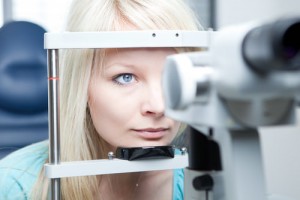Getting checked early may be the best thing you can do for yourself or a loved one. This can help you prevent diseases like cancer, diabetes, and osteoporosis in it’s early stages, when they’re easier to treat. Screening tests can detect illnesses even before you develop any symptoms. Screening tests are different for every person, they depends on your age, family history, your own health history, and other risk factors. This really is one of those instances where it is “better to be safe than sorry”. These necessary exams might just save your life.
Necessary exams
1 . Mammogram– are low-dose X-rays image of your breast used to screen for breast cancer, this can often find a lump before you ever feel it. The earlier breast cancer is found, the better your chances of a cure. Small breast-cancers are less likely to spread to lymph nodes and vital organs like the lungs and brain. Breast exams are recommended for women in their 20s or 30s, these should be a regular check-up every one to three years. You should have one yearly while you’re in your 40s. Then switch to every other year between ages 50 and 74. You may need more frequent screenings if you have any extra risk factors.
2 . Cervical Cancer-this exam is done when your getting a pap smear, your doctor scrapes some cells off your cervix and sends them to a lab for analysis. Cervical cancer is a type of cancer that occurs in the cells of the cervix, which is the lower part of the uterus that connects to the vagina. Various strains of the human papillomavirus (HPV), a sexually transmitted infection, play a role in causing most cases of cervical cancer. It is recommended that you get your first Pap smear by age 21, and every two years after that. If you’re 30 or older, you can get HPV tests, too, and wait a little longer between Pap smears. Both screenings are very effective in finding cervical cancer early enough to cure it.
3 . High blood pressure-the older we get the higher our high blood pressure increases, especially if you are overweight or have certain bad health habits. High blood pressure can cause life-threatening illnesses like heart attacks or strokes without any warning. Lowering your blood pressure may help prevent long-term dangers like heart disease and kidney failure.
4 . Cholesterol-High cholesterol causes plaque to clog your arteries. Plaque can build up for many years without symptoms, eventually causing a heart attack or stroke. High blood pressure, diabetes, and smoking can all cause plaque to build up as well. It’s a condition called hardening of the arteries or atherosclerosis. Lifestyle changes and medications can lower your risk.
5 . Skin cancer-Its important to watch out for any changes in your skin, including moles and freckles. Pay attention to changes like shape, color, and size. You should also get your skin checked by a dermatologist or other health professional during your regular physicals.
6 . Glaucoma- Glaucoma occurs when pressure builds up inside your eye. Without treatment, it can damage the optic nerve and cause blindness. In many cases, it produces no symptoms until your vision has already been damaged.
7 . Colonoscopy– Colorectal cancer is the second highest cause of cancer death after lung cancer. Most colon cancers come from polyps (abnormal masses) that grow on the inner lining of the large intestine. Polyps may or may not be cancerous but if they are the cancer can spread to other parts of the body. Removing polyps early, before they become cancerous can prevent it completely.
Speak to your family doctor if you suspect you might need these necessary exams due to family history or just as a precaution.



